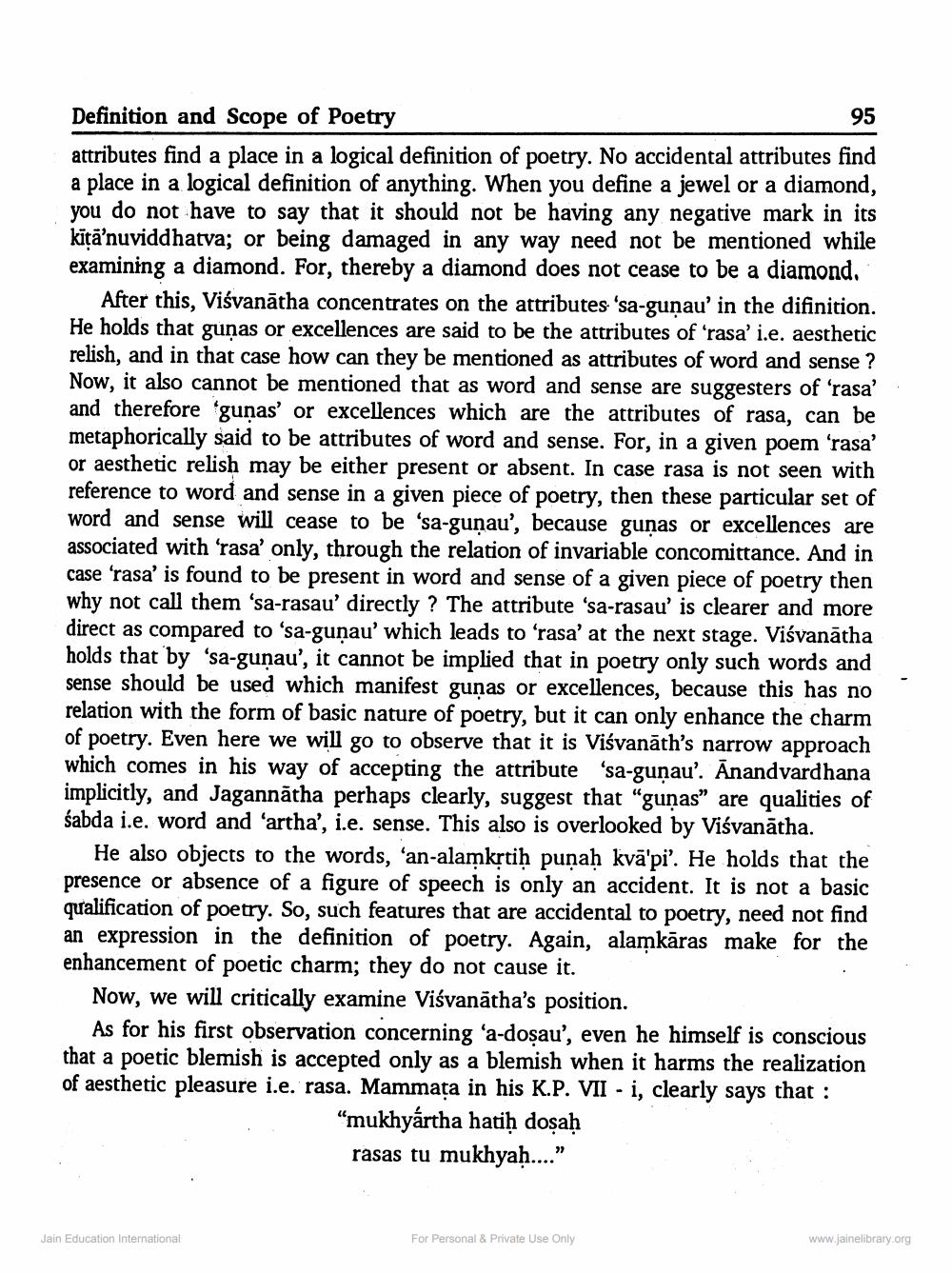________________
Definition and Scope of Poetry
95 attributes find a place in a logical definition of poetry. No accidental attributes find a place in a logical definition of anything. When you define a jewel or a diamond, you do not have to say that it should not be having any negative mark in its kītā'nuviddhatva; or being damaged in any way need not be mentioned while examining a diamond. For, thereby a diamond does not cease to be a diamond.
After this, Viśvanātha concentrates on the attributes 'sa-guņau' in the difinition. He holds that gunas or excellences are said to be the attributes of 'rasa' i.e. aesthetic
, and in that case how can they be mentioned as attributes of word and sense? Now, it also cannot be mentioned that as word and sense are suggesters of 'rasa'. and therefore 'gunas' or excellences which are the attributes of rasa, can be metaphorically said to be attributes of word and sense. For, in a given poem 'rasa' or aesthetic relish may be either present or absent. In case rasa is not seen with reference to word and sense in a given piece of poetry, then these particular set of word and sense will cease to be 'sa-gunau', because gunas or excellences are associated with 'rasa' only, through the relation of invariable concomittance. And in case 'rasa' is found to be present in word and sense of a given piece of poetry then why not call them 'sa-rasau' directly? The attribute 'sa-rasau' is clearer and more direct as compared to 'sa-gunau' which leads to 'rasa' at the next stage. Visvanātha holds that by 'sa-gunau', it cannot be implied that in poetry only such words and sense should be used which manifest gunas or excellences, because this has no relation with the form of basic nature of poetry, but it can only enhance the charm of poetry. Even here we will go to observe that it is Viśvanāth's narrow approach which comes in his way of accepting the attribute 'sa-gunau'. Anandvardhana implicitly, and Jagannātha perhaps clearly, suggest that "guņas” are qualities of śabda i.e. word and 'artha', i.e. sense. This also is overlooked by Visvanātha.
He also objects to the words, 'an-alamkrtih punah kvā'pi'. He holds that the presence or absence of a figure of speech is only an accident. It is not a basic qualification of poetry. So, such features that are accidental to poetry, need not find an expression in the definition of poetry. Again, alamkāras make for the enhancement of poetic charm; they do not cause it.
Now, we will critically examine Viśvanātha's position.
As for his first observation concerning 'a-dosau', even he himself is conscious that a poetic blemish is accepted only as a blemish when it harms the realization of aesthetic pleasure i.e. rasa. Mammata in his K.P. VII - i, clearly says that :
"mukhyártha hatiḥ dosaḥ
rasas tu mukhyaḥ...."
For Personal & Private Use Only
Jain Education International
www.jainelibrary.org




